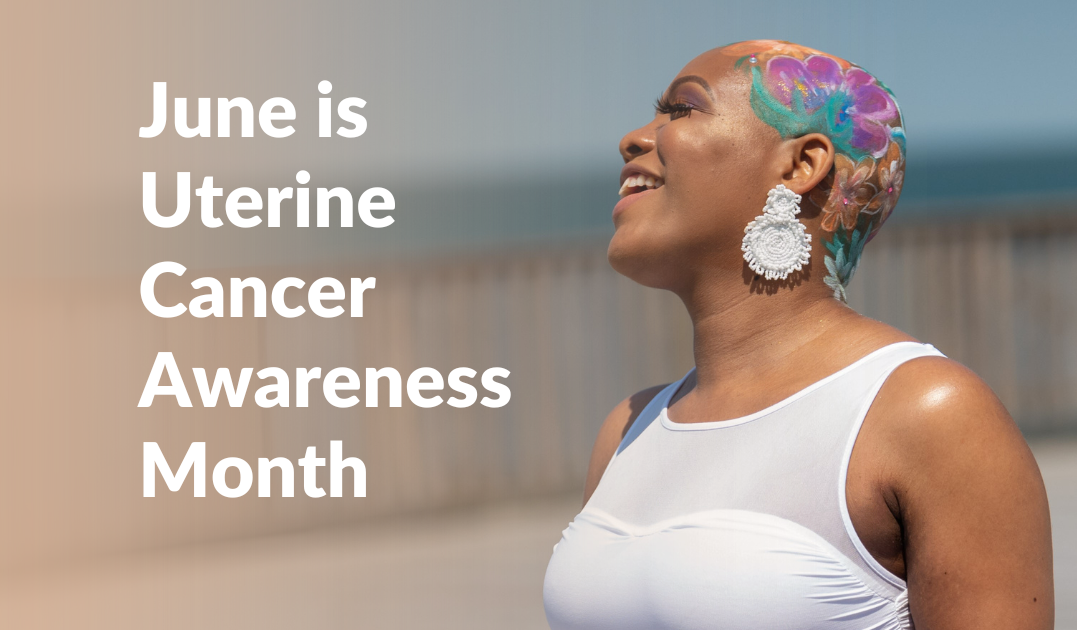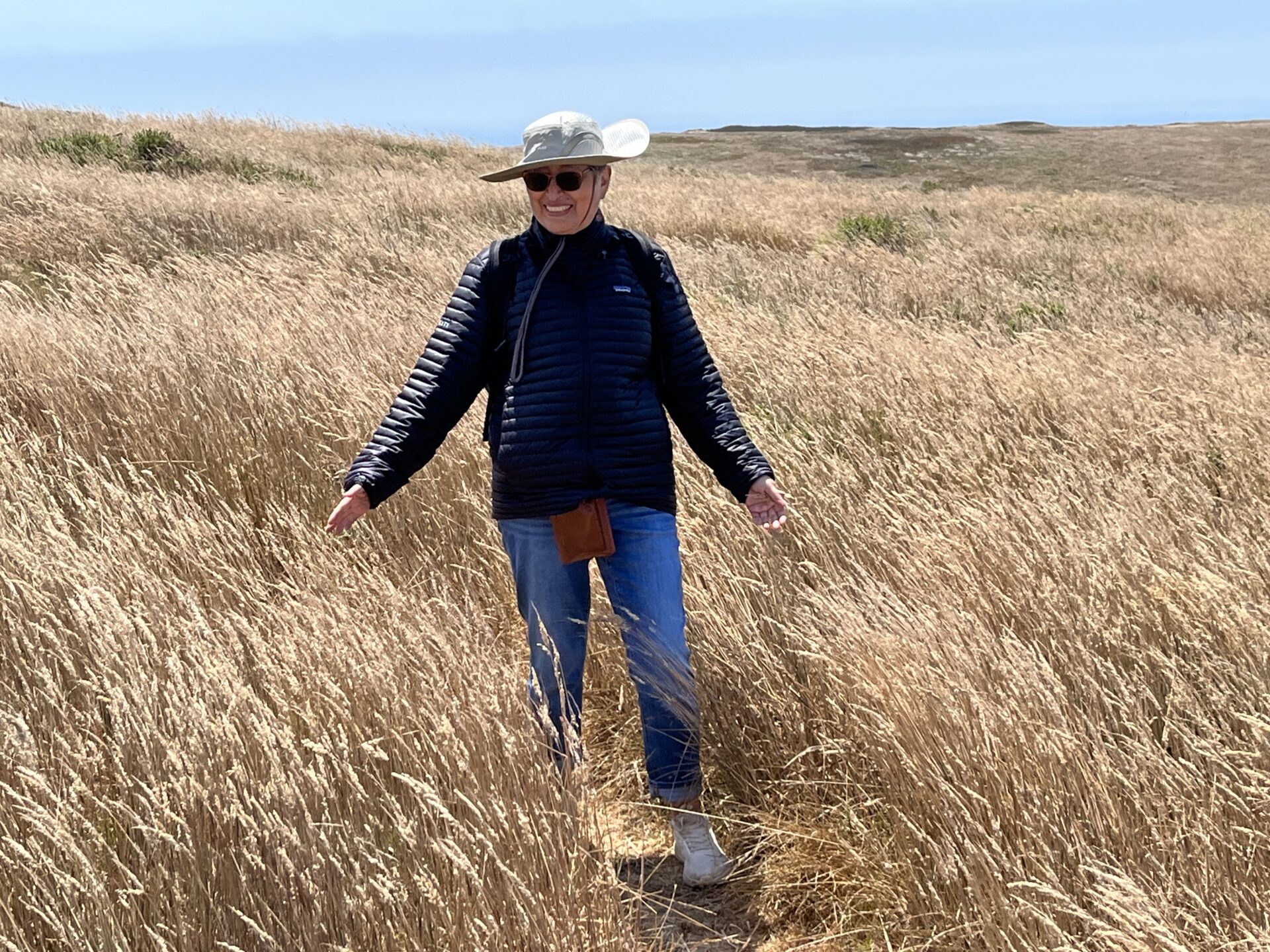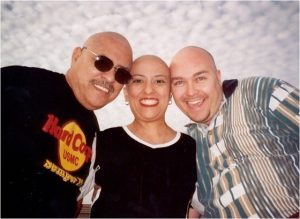
It was August of 2001 when I awoke one evening with a stabbing pain in my side that was so serious, I headed straight to the emergency room.
I left with a diagnosis of “depression” and a bottle of painkillers.
Something inside me – a gut feeling I can’t explain – told me to follow up with my gynecologist. A sonogram showed a mass and his educated guess seemed absurd to me. “I think you may have ovarian cancer,” he said, matter-of-factly. I could not believe him– 30-year-old healthy women do not get ovarian cancer!
On Thanksgiving Day, I awoke from a six-hour surgery to my parents softly weeping at my bedside. I knew in my heart the news must be bad. It was stage 2b ovarian cancer. It had spread to the surrounding tissue and some lymph nodes. But the most tragic result was that the doctors performed a radical hysterectomy in what they deemed a life-saving measure. I would never have the chance to bear my own children.
We learned that mine was a rare type of ovarian cancer called germ cell, akin to testicular cancer in men. Germ cell accounts for less than 5% of all ovarian cancer cases in the United States. Scared and feeling helpless, I started my chemotherapy treatments on January 9, 2002.
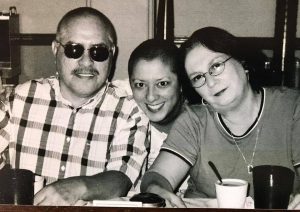
Cancer is a lonely disease. The worst times were around 2:00 AM when I was alone with my terrifying thoughts. After the first month of my treatment, my body was not responding and the cancer was spreading. Just after Valentine’s Day, my doctor informed me the cancer had spread to the liver and lining of my stomach. I was now considered stage IV, also known as “end stage” disease. My social worker told me to put my affairs in order. But I wasn’t about to go down without a fight.
Humor was my saving grace in this whole nightmare. My dad is the funniest person I have ever known and he did his best to cheer me up at every opportunity. Bald and sick, I remember having a particularly bad morning, refusing to go to chemo. My dad forced me out of bed and I cried the whole way to the hospital. We were running late and I knew the nurses would be angry. My dad quipped: “Just tell them you couldn’t do anything with your hair.” I tried it. The nurses burst out laughing and somehow I knew everything was going to be okay.
By May 2002, my tumor marker had dwindled from 44,000 to 309. Normal is less than 10. I had come a long way on my cancer journey and it was looking like I might beat this thing after all. In September of 2002, I heard the glorious words I had been waiting to hear for almost a year: “You are in full remission!”
I was shocked I was still alive and was something of a lost soul. What in the world do I do with my newfound life now? Where do I go from here? I had come full circle from doctors telling me I had less than a year to live to having my “cancer slate” wiped clean. My fiancé and I decided to start a cancer support group since there had not been one available to me during my treatment. I decided helping others with their cancer journey was something I was probably destined to do.
I went to my first OCRFA Ovarian Cancer National Conference in 2005. I had lost my entire life savings trying to pay for my ovarian cancer surgery and subsequent treatment–my finances were decimated. The only way I was able to attend was because I received a travel scholarship, available to me thanks to the generosity of OCRFA’s donors.
In the years that followed, I eventually joined the Advocate Leader Program. I was identified as an advocate in my community on policy issues affecting women with ovarian cancer. I’ve represented my congressional district in Texas as an OCRFA Advocate Leader every year since.
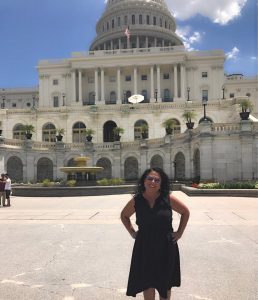
I am a champion for being your own best healthcare advocate. This year, I will celebrate 17 years of cancer survivorship. I have an appreciation for growing older. Today, at age 46, I embrace the wrinkles, the gray hairs, and the aching bones. I have too many ovarian cancer “teal sisters” who never had the chance to grow old. I’m not about to take my life for granted. I live every day like it will be my last. I use the “good china” and I leave nothing unsaid. I never had the chance to be a mom but I take my job as an auntie to my two nephews very seriously. Every morning I wake up, I realize life is precious; something not to be wasted.
I’m not thankful for having cancer, but I was able to find something positive from my experience. That is one of the many reasons I am so grateful for OCRFA. This organization has given me the opportunity to share my voice with my elected officials, allowing me to play a pivotal role in securing cancer research funding. At OCRFA’s annual conference, I am able to gather among my fellow ovarian cancer survivors and learn about the cutting-edge research the organization is funding, the latest innovative cancer treatments, and updates on how close we are to eventually curing this awful disease.
From fighting for my life to coping with life after cancer, OCRFA has empowered me to speak up not only for myself, but for every woman diagnosed with ovarian cancer. I don’t know when we will find the cure, but I do know OCRFA is leading the fight and will be there every step of the way. I find great comfort in that thought. I encourage you to continue your support for this incredible organization.
I am Rebecca Esparza and my journey continues.

Rebecca Esparza
Ovarian Cancer Survivor and Advocate
